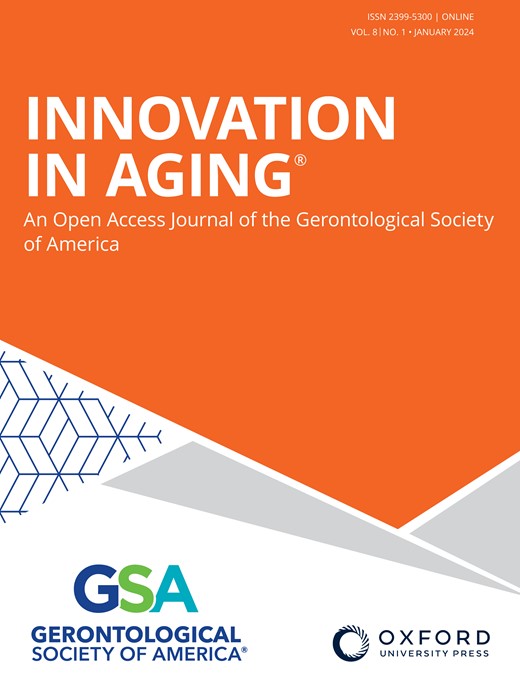厄瓜多尔医学生学习老年医学专业的动机:一种定性方法
IF 4.9
3区 医学
Q1 GERIATRICS & GERONTOLOGY
引用次数: 0
摘要
摘要 由于医科学生对成为老年病学医生缺乏兴趣,尽管研究表明老年病学是最有成就感的医学专业之一,但厄瓜多尔与全球许多国家一样,缺乏老年病学医生。虽然没有足够的完善机构来培训老年病学医生,但问题的根本在于缺乏学生职业。我们开展了一项参与式定性研究,以确定和描述厄瓜多尔基多医科学生对成为老年病学医生的兴趣的相关动机和障碍。在对医学生进行访谈技巧培训后,我们对他们进行了定性访谈。对录音进行了转录和编码,然后分析其模式。接受访谈的 32 名学生中,没有人将老年医学作为第一医学专业选择,其中有两名学生认为有可能选择老年医学,但不是第一选择。对老年医学不感兴趣的最主要原因是缺乏接触,以及对直系亲属以外的老年人的生活普遍无知。虽然大多数参与者认识到该专业的基本重要性,但也出现了一些似乎难以克服的障碍:老年恐惧症和恐老症是强大的障碍,再加上人们认为照顾老年人会造成情感伤害。此外,还有一种观点认为,在老年医学方面,医生不可能达到 "拯救生命 "的目的。随着全球南部的老龄化,大学必须让学生更多地接触老年人以及与老年人护理相关的职业,以此作为促进新职业发展的第一步。本文章由计算机程序翻译,如有差异,请以英文原文为准。
MEDICAL STUDENT MOTIVATIONS TO STUDY GERIATRICS AS MEDICAL SPECIALTY IN ECUADOR: A QUALITATIVE APPROACH
Abstract Due to a lack of interest in becoming geriatricians in the medical student community and despite studies showing geriatrics as one of the most fulfilling medical specialties, Ecuador, like many countries globally, lacks geriatricians. Although there are insufficient well-established institutions training geriatricians, the issue essentially lies in the lack of student vocations. We conducted a qualitative and participatory study to identify and describe the motivations and barriers associated with medical students’ interests in becoming geriatricians in Quito, Ecuador. Qualitative interviews between medical students after interviewing technique training were conducted. Audio recordings were transcribed and coded, and then analyzed for patterns. Thirty-two students were interviewed, none of which considered geriatrics as their first medical specialty option, and two of which considered the possibility of such a choice, but not as a first option. Among the most significant patterns associated with disinterest in geriatrics was the lack of exposure as well as a general ignorance of the lives of older adults beyond direct relatives. While most participants recognized the fundamental importance of the specialty, barriers appearing unsurmountable emerged: patterns of gerontophobia as well as thanatophobia were strong hurdles, combined with the perception of an emotional toll associated with the care of older adults. This joined with the view that physicians could not be fulfilling their purpose of “saving lives” in the context of geriatrics. As the Global South ages, universities must improve student exposure to older adults and the professions associated with their care as a first step towards promoting new vocations.
求助全文
通过发布文献求助,成功后即可免费获取论文全文。
去求助
来源期刊

Innovation in Aging
GERIATRICS & GERONTOLOGY-
CiteScore
4.10
自引率
0.00%
发文量
72
审稿时长
15 weeks
期刊介绍:
Innovation in Aging, an interdisciplinary Open Access journal of the Gerontological Society of America (GSA), is dedicated to publishing innovative, conceptually robust, and methodologically rigorous research focused on aging and the life course. The journal aims to present studies with the potential to significantly enhance the health, functionality, and overall well-being of older adults by translating scientific insights into practical applications. Research published in the journal spans a variety of settings, including community, clinical, and laboratory contexts, with a clear emphasis on issues that are directly pertinent to aging and the dynamics of life over time. The content of the journal mirrors the diverse research interests of GSA members and encompasses a range of study types. These include the validation of new conceptual or theoretical models, assessments of factors impacting the health and well-being of older adults, evaluations of interventions and policies, the implementation of groundbreaking research methodologies, interdisciplinary research that adapts concepts and methods from other fields to aging studies, and the use of modeling and simulations to understand factors and processes influencing aging outcomes. The journal welcomes contributions from scholars across various disciplines, such as technology, engineering, architecture, economics, business, law, political science, public policy, education, public health, social and psychological sciences, biomedical and health sciences, and the humanities and arts, reflecting a holistic approach to advancing knowledge in gerontology.
 求助内容:
求助内容: 应助结果提醒方式:
应助结果提醒方式:


